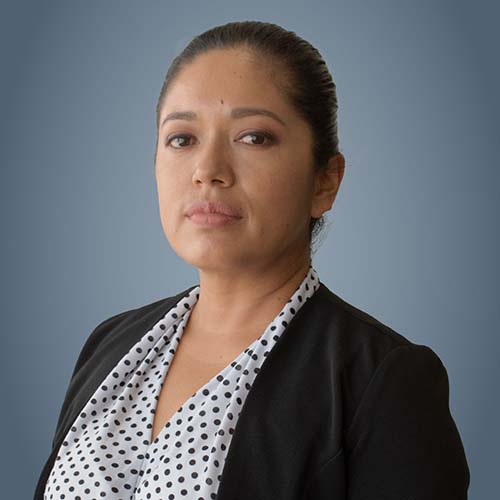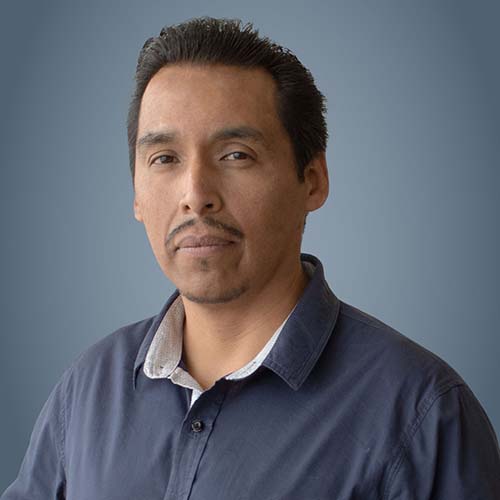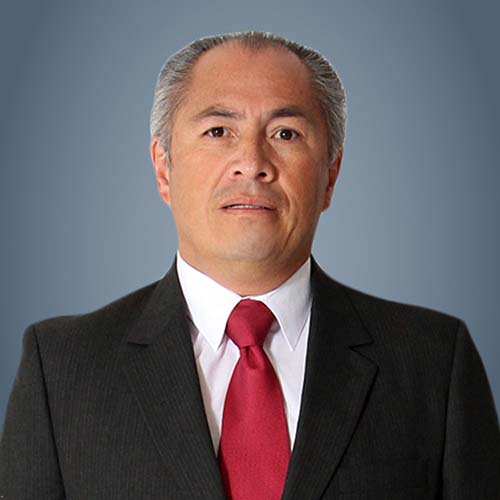DISCIPLINARY BACKGROUND
Why study the Master's Degree in Environmental Management?
The Master's Degree in Environmental Management arises from the need to implement solutions to the global problems listed in the 17 objectives of sustainable development proposed by the UN. Social inequality, the exploitation of natural resources, the evaluation of the current state of these, equitable access to food and education, ecological land management and the revision of current environmental legislation are some of the priority issues for the 2030 agenda from which the list of objectives is based, and which this postgraduate degree seeks to solve by promoting interaction between the main social actors in the use of resources: communities, governments, industries and educational institutions.
Unlike other similar postgraduate programs, this program seeks to solve to some extent the aforementioned problems starting from a professionalizing modality linked to the industry, so it does not require a thesis or a scientific article as degree options but a product of linkage that guarantees that the knowledge generated during the professional training is applied and solves to some extent the problem that started the approach.
- To innovate processes, knowledge, skills, attitudes and values in the handling of legislation, technologies and socioeconomic aspects of Environmental Management; through the respectful integration of multidisciplinary knowledge, in order to promote integral community progress and help the country reach the objectives set forth by national and international agendas.
- Integrate skills and capacities in the knowledge related to Environmental Legislation; through the contrast, analysis and development of own points of view on national and international guidelines and regulations on environmental management; in order to identify areas of opportunity for the generation of modifications, annexes and new regulations, based on solid technical knowledge, as well as an integral, humanistic and respectful valuation of social needs.
- Apply knowledge in innovative technologies for the evaluation, prospecting and remediation of the biological, social and economic aspects that deteriorate the environment; by integrating and evaluating information and practical applications in the work field with strict adherence to the operational regulations that determine the quality of the technical tools to be used.
- To integrate the knowledge of indigenous, rural, urban communities, companies, institutions, etc., in the field of environmental management through training in competencies based on experiences and case studies where the practical application and pedagogical communication leads to the development of an integrated work of rigorous quality, applied to the resolution of a socioeconomic problem defined in one of the spheres of the social hierarchy.
- Legislative: articulates legislation, jurisprudence and regulation for the use of natural resources and environmental services. In addition, it allows establishing standardized and competitive methodologies for the evaluation and development of environmental and social technologies and indicators, such as the Mexican Official Standards (NOMs) and those proposed by the International Certification Organizations (ISO) 14001. The basic professionalizing subject of this line is Environmental Legislation, the related elective subjects are: Territorial and Urban Ecological Planning, Environmental Management Certification and Environmental Policy Instruments.
- Technical: integrates knowledge in physicochemistry, biology, applied technologies, among others, for the evaluation, mitigation and prevention of problems related to natural resources, environmental services and the environment in general. Within this area, Natural Resources Management is considered as a basic professionalizing subject, and the elective subjects are: Environmental Impact and Risk Studies, Environmental Impact and Risk Studies, Environmental Impact and Risk Studies, and Environmental Impact and Risk Studies: Environmental Impact and Risk Studies, Geographic Information Systems, Statistics Applied to Environmental Assessment, Climate Change Mitigation and Adaptation, and Renewable Energies.
- Socioeconomic: determines the particular needs that the inhabitants of a region need to cover, which of them depend on the use of natural resources, environmental services and the environment, and the means available for their management and handling. The basic professionalizing subject of this area is Environmental Education, the optional subjects are: Development and Implementation of Productive Projects, Sustainable Community Development and Environmental Responsibility.
Basic Academic Core
We have 6 research professors with PhD degrees.

Dr. Dulce María Galván Hernández
dulce_galvan11212@uaeh.edu.mx
SNI I
PRODEP: Current
LGAC: Environmental Management and Ecological Restoration

Dr. Pablo Octavio Aguilar
pablo_aguilar9900@uaeh.edu.mx
SNI II
PRODEP: Current
LGAC: Environmental Management and Natural Resources Management

Dr. Raúl Ortiz Pulido
ortizrau@uaeh.edu.mx
SNI: III
PRODEP: Current
LGAC: Environmental Management and Natural Resources Management

Dr. Yamilé Rangel Martínez
profe_6771@uaeh.edu.mx
SNI: C
PRODEP: Current
LGAC: Environmental Management and Environmental Legislation

Dr. Sylvia Martínez Hernández
sylvia_martinez10436@uaeh.edu.mx
PRODEP: Current
LGAC: Environmental Management and Environmental Impact Assessment

Dr. Ma. del Carmen López Ramírez
carmen_lopez@uaeh.edu.mx
SNI I
PRODEP: Current
LGAC: Environmental Management and Environmental Education

Dr. María del Consuelo Cuevas Cardona
cuevas@uaeh.edu.mx
SNI I
PRODEP: Current
LGAC: Environmental Management and Environmental Education

Dr. Maritza López Herrera
maritzal@uaeh.edu.mx
SNI C
LGAC: Environmental Management and Natural Resource Management

Dr. Ana Paola Martínez Falcón
ana_martinez6052@uaeh.edu.mx
SNI I
LGAC: Environmental Management and Natural Resource Management

Dr. Otilio Arturo Acevedo Sandoval
acevedo@uaeh.edu.mx
SNI II
LGAC: Environmental Management and Environmental Impact Assessment



